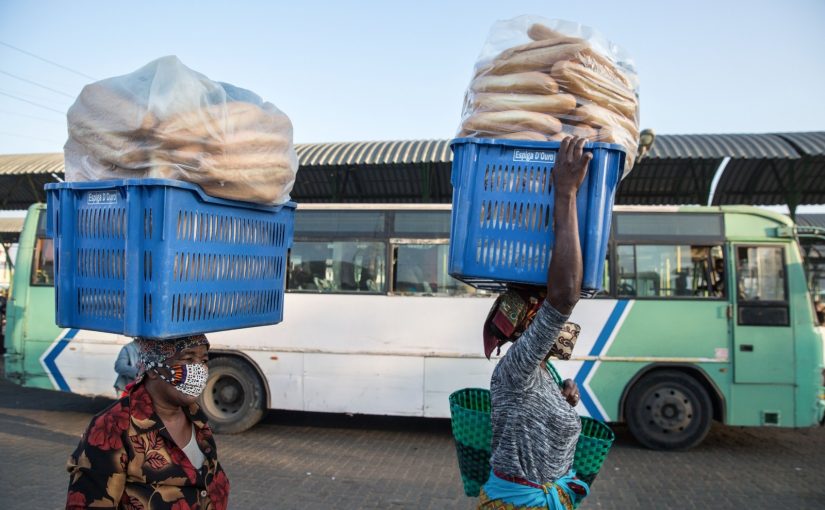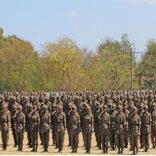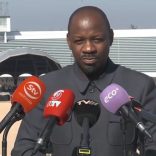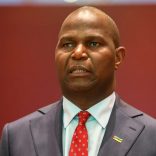Mozambique: Government approves new Military Service Regulation
Mozambique: State of emergency ends, next steps uncertain – AIM report

File photo: Lusa
The Mozambican state of emergency, imposed to slow the spread of the Covid-19 pandemic, ended at 23.59 on Wednesday night, and no measures to replace it have yet been decreed.
President Filipe Nyusi first declared the state of emergency on 1 April for 30 days. It was then extended for three further 30 day periods, ratified unanimously on each occasion by the Mozambican parliament, the Assembly of the Republic.
But there can be no further extension. The Mozambican constitution states categorically that there can only be three extensions. This limits the state of emergency to 120 days.
The Constitution also states that, when the state of emergency ends, so do all its effects. Thus ignoring the restrictive measures imposed under the state of emergency will still be reckless in terms of public health, but will not be illegal.
Addressing the nation from the city of Tete on Wednesday night, Nyusi said that on Thursday he will deliver a detailed report to the Assembly on the measures taken under the state of emergency. This is a constitutional requirement, and after the Assembly has received the report “we shall take decisions about the strategies and measures we shall adopt for our immediate future”.
He promised a further address to the nation as soon as those decisions are taken. There is thus a hiatus between the end of the state of emergency and whenever the new measures are announced.
Nyusi urged citizens to be patient and not to take advantage of the gap between one set of measures and the next. They should not ignore the gains made during the 120 days of the state of emergency, he insisted.
“In the following days, all the measures currently in force should continue to be followed with the same vigour”, said Nyusi. “It’s not worth it for us to become impatient”.
It remained imperative, he said, to continue observing the basic rules of prevention, particularly the use of masks or visors, and frequent washing of hands.
With the advice of the Technical and Scientific Commission which it set up in March, the Government, Nyusi said, has begun “a productive dialogue” with the various sectors of Mozambican society in order to decide how various activities can be resumed in a gradual and safe manner.
The pace of the resumption of activities would depend on how the pandemic evolves in Mozambique, he stressed.
“There are no other paths, there are no short-cuts”, the President said. “Yes, we shall go ahead, but prudently, while there are no vaccines or medicines available for Covid-19”.
So there is, as yet, no date fixed for the reopening of schools, and the ban on most forms of public entertainment remains in force. There is no suggestion that theatres, cinemas or places of worship, much less bars, will reopen in the near future.
Summarising events since the first Covid-19 case was diagnosed on 22 March, Nyusi noted that by the end of April 76 cases had been notified, rising to 244 at the end of May, to 883 at the end of June, and to 1,748 now.
Nonetheless, he believed that the preventive measures taken, and the collaboration of Mozambican citizens, had slowed down the transmission of the disease. The peak of the Mozambican epidemic had been postponed, alleviating the pressure on the national health system. Nyusi believed this had saved many lives.
But the pandemic was far from over, and so “in no way can we ease up on our efforts to hold back the transmission of the disease. We cannot vacillate in maintaining responsible measures and behaviour, because these are the measures that have functioned as a shield to defend our public health”.
The restrictive measures imposed under the state of emergency fell far short of the total lockdown imposed in neighbouring South Africa and in many European countries. Much of the economy had continued to function, albeit it at a reduced level, and, although people were urged to stay at home, no attempt was made to force them to do so.
Nyusi believed that the Mozambican strategy “minimised the social convulsions that were observed in some other countries which had declared total lockdowns”. The problem with lockdowns, he said, was that, in the name of protecting public health, many citizens were deprived of the basic resources needed to sustain themselves and their families.
“We need to stick together and to invent, all of us, a new way of living in society”, declared the President.












Leave a Reply
Be the First to Comment!
You must be logged in to post a comment.
You must be logged in to post a comment.